When I was asked by MarieClaire.com to write a guest blog post on the subject of women as represented in the media, I was initially hesitant. I felt I'd already said everything I needed to say. But, upon further reflection, I realized that there's a reason Mike & Molly strikes a nerve with people. We, as a society, have a tendency to bury things that we deem unpleasant. Mike & Molly took a risk and put a rather significant issue at the forefront of our minds. Weight.
I have watched Mike & Molly since the beginning of the season. I had high hopes for the show, and I thought it was about damn time someone put people who weren't stick thin on television. To be honest, the show lacks the spark I was hoping it would have. Bloggers and the media are quite right…I believe too much attention is paid to the actor's weight. The truth is overweight people don't walk around talking about being overweight all the time, and they certainly aren't friends with people who make weight an issue. I realize that Mike & Molly is a sitcom, the writing should be funny, but fat jokes aren't that funny anymore—they're predictable and can be offensive. And, let's be honest…when I was at my heaviest, I wasn't sitting around cracking fat jokes, and I would have been mortified if someone I was with had. Is that even a realistic portrayal of the relationships Mike and Molly would have? Another interesting note on Mike & Molly is the character of Molly's sister. While this character is not obese, or overweight, she is dressed in skimpy clothes, and portrayed as a pill‐popping alcoholic bimbo. Is that female portrayal more palatable to those offended by full‐figured characters?
But, this issue extends beyond Mike & Molly. Shows that feature full‐figured people have been popping up on television for several years now. How about Ugly Betty? Betty wasn't obese, but for the role, America Ferrera was a fuller‐figured character made to look pretty unappealing with braces and out‐of‐date glasses. Don't worry though, Hollywood "fixed it" by the end of the series when Betty lost her braces, straightened her hair, and got some fashion sense. Or how about Brooke Elliott's character Jane Bingum on Drop Dead Diva? Bingum plays a former aspiring model who dies and is reincarnated into the body of an overweight attorney. While slightly more realistic and less apologetic, there are still references to Bingum's character using her brain instead of her body, and finding her inner beauty. But, why can't Jane be beautiful AND big?
I've been racking my brain, and I can only think of one plus‐sized character on a television series whose weight was not an issue. And, it ends up back in the hands of Melissa McCarthy. McCarthy played Loralei Gilmore's best friend Sookie on the television series Gilmore Girls. Sookie's weight was NEVER an issue on the show, and it didn't need to be. She was a chef who loved and appreciated food, and that was obvious. But there didn't need to be discussions about her weight. In my opinion, Gilmore Girls was an honest portrayal of women on television. All the female leads were flawed. But didn't that make them relatable?
I guess that's what it all boils down to for me. I want to see myself reflected in the characters on television—not all characters, but at least some. And I want to watch people who have honest relationships with one another. Life is messy, and no one is perfect. And I can relate to that! I want real women characters. Real women come in all different shapes and sizes. That's real! What isn't real is the sea of same‐sized women character we see on television. Molly may not be perfect, but she's real. Perhaps if we embraced differences instead of rejecting them, our society would be better off.
Check out more of what Elizabeth Tierney has to say on her blog at To New Bodies.
Join the conversation. Please comment below!
Stay In The Know
Marie Claire email subscribers get intel on fashion and beauty trends, hot-off-the-press celebrity news, and more. Sign up here.
-
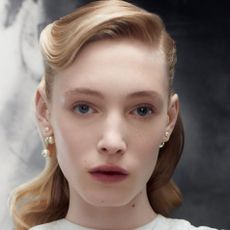 Bitten Lips Took Center Stage at Dior Fall 2024 Show
Bitten Lips Took Center Stage at Dior Fall 2024 ShowModels at the Dior Fall 2024 show paired bitten lips with bare skin, a beauty trend that will take precedence this season.
By Deena Campbell Published
-
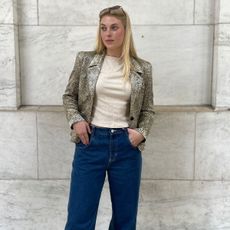 30 Spring Items That Solve My Expensive-Taste-on-a-Humble-Budget Dilemma
30 Spring Items That Solve My Expensive-Taste-on-a-Humble-Budget DilemmaSee every under-$300 spring item on my wish list.
By Natalie Gray Herder Published
-
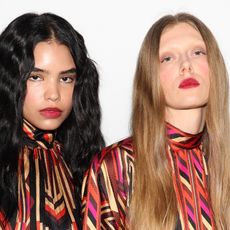 Your Makeup Won't Budge With These Setting Sprays
Your Makeup Won't Budge With These Setting SpraysPrepare for 12-hour wear.
By Sophia Vilensky Published
-
 Documentaries About Black History to Educate Yourself With
Documentaries About Black History to Educate Yourself WithTake your allyship a step further.
By Bianca Rodriguez Published
-
 In 'We Are Not Like Them' Art Imitates Life—and (Hopefully) Vice Versa
In 'We Are Not Like Them' Art Imitates Life—and (Hopefully) Vice VersaRead an excerpt from the thought-provoking new book. Then, keep scrolling to discover how the authors, Jo Piazza and Christine Pride, navigated their own relationship while building a believable world for Riley and Jen—best friends, one Black, one white, dealing with the killing of an unarmed Black boy by a white police officer.
By Danielle McNally Published
-
 Love Has Lost
Love Has LostQuasi-religious group Love Has Won claimed to offer wellness advice and self-care products, but what was actually being dished out by their late leader Amy Carlson Stroud—self-professed “Mother God”—was much darker. How our current conspiritualist culture is to blame.
By Virginia Pelley Published
-
 What Does "ROC" Mean at the Tokyo Olympics?
What Does "ROC" Mean at the Tokyo Olympics?It's a temporary workaround in the aftermath of Russia's massive doping scandal.
By Katherine J. Igoe Published
-
 What Makes an Olympic Moment?
What Makes an Olympic Moment?In the past it meant overcoming struggle...and winning. But why must athletes suffer to be inspiring?
By Megan DiTrolio Published
-
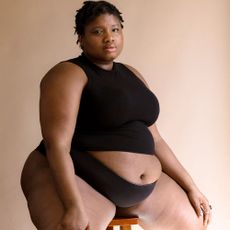 Jessamyn Stanley on Self-Acceptance and the Realities of American Yoga
Jessamyn Stanley on Self-Acceptance and the Realities of American YogaIn her new book, 'Yoke,' the yoga teacher and entrepreneur explores American yoga's link to capitalism, white supremacy, and more.
By Rachel Epstein Published
-
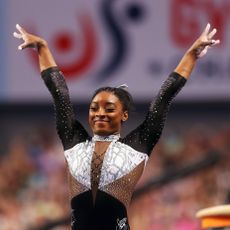 Simone Biles on Her GOAT Leotard: Don't Be Ashamed of Being Great
Simone Biles on Her GOAT Leotard: Don't Be Ashamed of Being GreatThe world's greatest gymnast shares how she takes care of her mental health, the road to Tokyo, and the story behind her epic new leotard style.
By Megan DiTrolio Published
-
 Won't Call the Midwife
Won't Call the MidwifeWith high rates of maternal mortality and coercion in hospital settings, more American women are exploring childbirth without any medical assistance whatsoever. The Free Birth Society provides community, resources, and validation for these convention buckers. But experts warn that choice comes at the expense of safety.
By Rebecca Grant Published